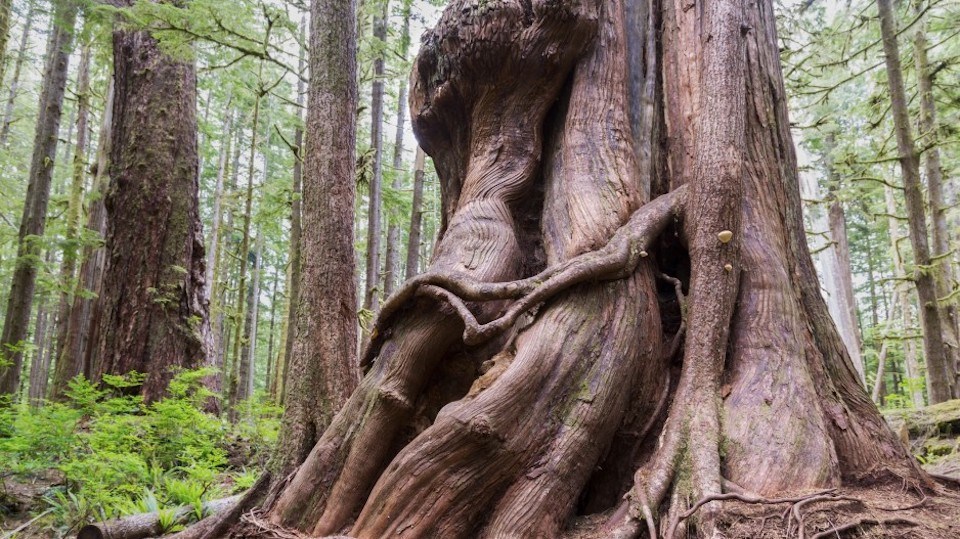Of the 188 First Nations who responded so far to the B.C. government’s request for a response to its plans to protect at-risk old growth forests from logging, 75 have agreed with the deferral plan, according to the Ministry of Forests.
Seven have said no to the plan, and more than 60 said they want more time before responding to the government's plan to make old growth off limits to logging in their traditional territories.
Originally, in November 2021, when the B.C. government announced its plans for a moratorium on old growth logging, it announced 2.6 million hectares of old growth forest would be “deferred.”
“The province has announced its intention to work in partnership with First Nations to defer harvest of ancient, rare and priority large stands of old growth within 2.6 million hectares of B.C.’s most at-risk old-growth forests,” a government news release stated.
The Ministry of Forests has since clarified that 780,000 hectares of that old growth in not within the timber harvest land base, as it is deemed uneconomic.
The technical term for timber outside the harvest land base is “non-contributing,” which includes areas like very steep slopes where trees are not likely to ever be harvested.
Since that timber would never likely be harvested in any case, the government is now saying that 1.7 million hectares of old growth are to be covered by the deferrals, including 1 million hectares deemed to be “priority at risk.”
As part of its old growth logging moratoria, the government said it would consult with First Nations.
Of the 204 First Nations in B.C. that have been asked to respond to the government’s plans, 188 have responded, according to the Ministry of Forests. Eleven either have no old growth or no commercial harvesting in their territories.
Seventy-five First Nations have agreed to support the deferrals in their territories, seven have disagreed with the deferrals, and more than 60 have asked for more time to respond.
The Ministry of Forests notes that deferrals "a temporary measure to prevent irreversible biodiversity loss while the province, First Nations and other partners develop a new, long-term approach to old growth management that prioritizes ecosystem health and community resiliency throughout B.C."
“As a result of these engagements, deferrals have been implemented on approximately 1.05 million hectares of B.C.'s most at-risk old growth, which are ancient, remnant and priority large stands identified by the Old Growth Technical Advisory Panel,” the ministry says in a news release.
“This includes areas where sales have been paused by BC Timber Sales while engagements with First Nations are ongoing.”
Forestry consultant Jim Girvan has estimated removing more than 1 million hectares from the timber land base will reduce B.C. annual allowable cut by about 4 million cubic metres.
As a result, he estimates that as many as 10 sawmills may permanently close -- five on the coast and five in the interior.


